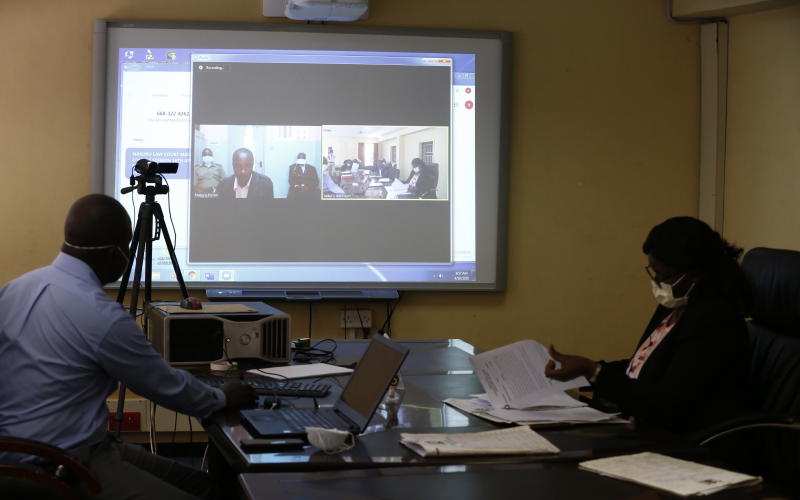×
The Standard e-Paper
Fearless, Trusted News

Samwel Gichure at Nakuru GK Prisons (on the screen) linked to Nakuru Law Courts via Zoom on April 16, 2020 during his sentencing. He was accused of trading in game meat of a zebra. Senior Resident Magistrate Yvonne Khatambi sentenced him to three years imprisonment. [Daniel Chege/Standard]
A chunk of the world considers 2020 among the lost years. But out of the pains of a difficult 12 months came disruption that pushed the world into a dynamic future.